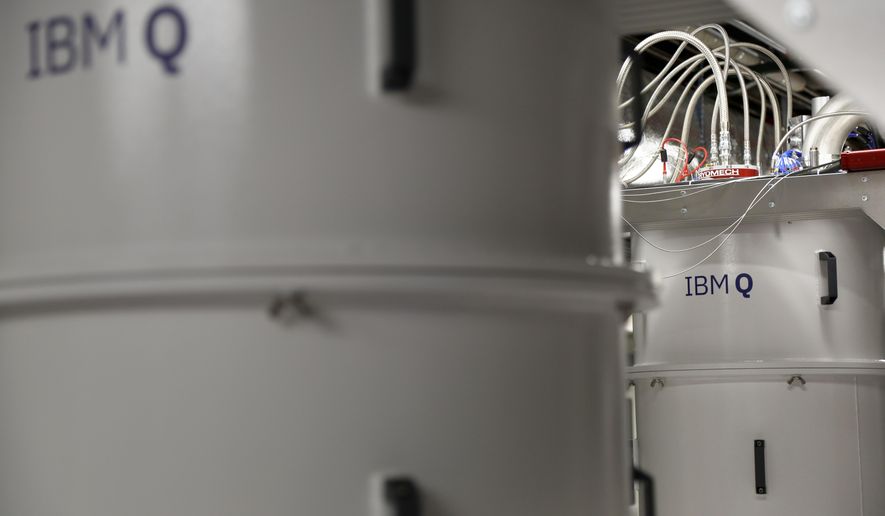Federal cybersecurity officials are preparing for a quantum computing surprise that requires the largest change in encryption ever to safeguard Americans’ data from foreign hackers.
The Cybersecurity and Infrastructure Security Agency’s Garfield Jones said Tuesday that the emergence of a cryptanalytically relevant quantum computer will upend digital security in unprecedented ways and that people need to prepare immediately.
Such a device, dubbed CRQC, would be capable of breaking encryption to expose government secrets and people’s personal information to anyone who uses the machine, according to cyber officials.
Nations will rush to develop the tech and keep it hidden from public view in order to steal their enemies’ data while upending information security in the process, according to Mr. Jones, CISA associate chief of strategic technology.
“When it drops, it’s not going to be, I don’t think it’s going to be a slow drop,” Mr. Jones told cyber officials assembled at the U.S. General Services Administration. “I think once someone gets this CRQC, none of us will know.”
Quantum computers promise speeds and efficiency that today’s fastest supercomputers cannot match, according to the National Science Foundation. Classical computers have more commercial value now because quantum computers have not yet proven capable of correcting errors involving encoded data.
A cryptanalytically relevant quantum computer, the CRQC, will be capable of correcting errors, according to Mr. Jones, and perform tasks that other computers cannot approach.
Preparations for defense against such technology are underway across the federal government.
Art Fuller, who is leading the Justice Department’s post-quantum cryptography efforts, said developing secure systems presents a huge challenge that cannot be solved by flipping a switch.
“This is the largest cryptographic migration in history,” Mr. Fuller told officials at Tuesday’s event.
Estimates on the timing of the creation of such a quantum computer vary, but Mr. Jones said large-scale quantum computers remain in the early stages of research and development and could still be a ways off.
Regardless, Mr. Jones cautioned digital defenders against delaying preparation for the arrival of such technology.
He described the environment surrounding the development of the CRQC as “almost very close to a nuclear weapon,” with nations competing to obtain the machine and keep it top secret.
“You never know, three years from now, you might have a CRQC but I think planning and getting that preparation in place will help you protect that data,” Mr. Jones said.
The National Security Agency similarly fears the arrival of a CRQC in the hands of America’s enemies.
NSA Director of Research Gil Herrera said last month that teams around the world are building with different technologies and could develop something representing a “black swan event,” an extremely unexpected occurrence with harsh consequences.
“If this black swan event happens, then we’re really screwed,” Mr. Herrera said, citing potential damage to everything from financial transactions to sensitive communications for nuclear weapons.
Mr. Herrera did not forecast precisely when a nation could develop such a device in remarks at the Intelligence and National Security Alliance event but indicated it may take a long time to achieve.
• Ryan Lovelace can be reached at rlovelace@washingtontimes.com.




Please read our comment policy before commenting.